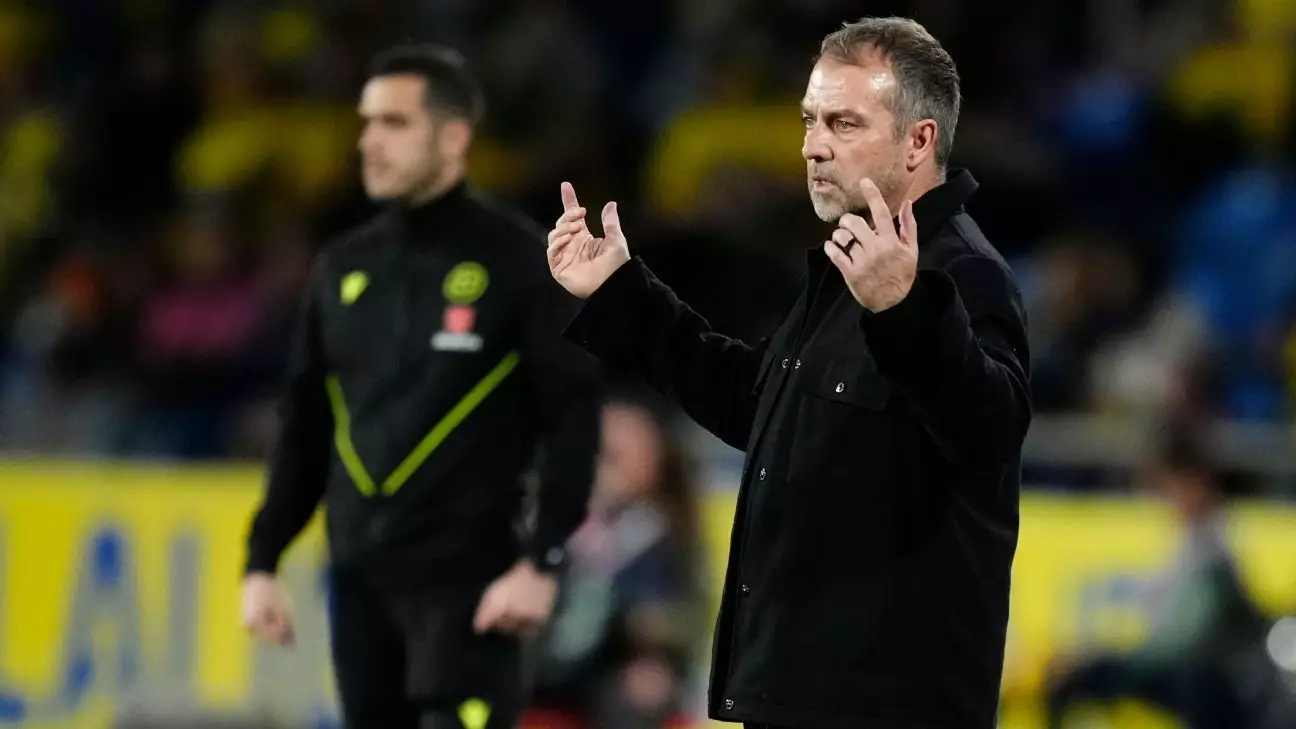The journey of a football team is often punctuated by a series of moments that define their season. For Barcelona, their recent victory over Las Palmas may have seen them reclaim the top spot in La Liga, but the sentiments echoed by their coach, Hansi Flick, paint a picture of a team still in search of its full potential. This juxtaposition of success and room for improvement is crucial in understanding the complexities of championship football.
Barcelona’s 2-0 triumph at the Estadio Gran Canaria was a momentary relief for fans and players alike. However, the celebration was muted by Flick’s sharp critique of his team’s first-half performance. Despite securing three points, Flick remarked on the 5-10% deficiency he perceived in his players, suggesting a disconnect that needs immediate attention. The stark contrast between winning and performing at optimal levels is a regular theme in sport; victories can obscure fundamental flaws that, if unaddressed, may jeopardize future success.
Flick’s assertion that the team’s positioning and passing were subpar highlights a critical area of focus. In football, where precision and strategy are vital, failing to execute these fundamentals can have severe consequences. Flick’s analysis implies that the team must embrace a greater understanding of spatial awareness on the pitch. The notion that their offensive strategies were lacking in execution during target-occupying moments in the box speaks volumes about where Barcelona may be trailing their competitors.
Despite the deficiencies, there were silver linings for the coach as substitutes Dani Olmo and Ferran Torres stepped up to deliver the decisive goals of the match. Olmo’s first goal following an injury was a significant development. By finding the net in the 62nd minute, he not only contributed to the scoreline but also reinforced his value to the team. Goals like his, created through dynamic interplay with teammates such as Lamine Yamal, are essential for building chemistry—a cornerstone for any successful team.
Equally impressive was Torres’ late goal, further underlining the depth of talent available to Flick. Both players made strong cases for more frequent starting roles. Their performances symbolize a squad that is not merely reactive but has the potential to be proactive, a feature indispensable for teams vying for championships. Flick’s acknowledgment of their contributions indicates a shift in potential tactical approaches, as he adapts to the dynamics of player form and fitness.
Looking forward, the upcoming Copa del Rey semifinal against Atlético Madrid poses an exciting yet daunting challenge. Given Atlético’s recent success against Barcelona, the team must utilize lessons learned from previous encounters. Flick must not only leverage the skills of his players but also bolster their confidence. After an intense run, the prospect of rapid match turnarounds is daunting; however, it also provides an opportunity for the players to capitalize on their momentum.
Flick’s philosophy of continuous improvement resonates not only with the players but also with fans who expect Barcelona to ascend back to its historical heights. The assertion that they are “still top of the table” is a reminder of their current position but should also serve as a call to action. The balancing act between enjoying success and striving for excellence is a theme visible in elite sports.
In summation, while Barcelona’s recent win against Las Palmas reinstills hope for La Liga success, the sober reflections from Hansi Flick manifest the need for ongoing development. The balance between maintaining top-form performances and achieving results is delicate. As the team continues on this path, improvements in positioning, psychological acumen, and on-field communication will be pivotal in shaping their destiny.
Ultimately, Barcelona’s strength will be measured not solely by their position at the top of the table but by their commitment to evolving and rising to the level of play needed to thrive under increasing pressure in competitive contexts. The upcoming matches will test their resilience, strategy, and relentless pursuit of improvement.


Leave a Reply